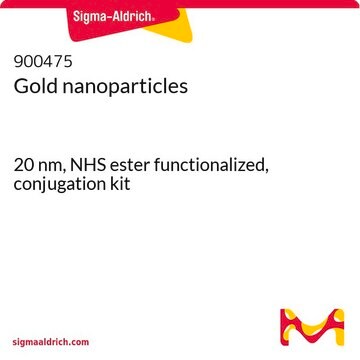795429
Sodium hydroxide
anhydrous, free-flowing, pellets, Redi-Dri™, ACS reagent, ≥97%
Synonym(s):
‘Caustic soda’
About This Item
Recommended Products
grade
ACS reagent
anhydrous
Quality Level
Agency
suitable for DIN 38407-42
suitable for EPA 1621
suitable for EPA 533
suitable for EPA 8327
suitable for EPA OTM-45
suitable for SM 4500 - NH3
vapor density
>1 (vs air)
vapor pressure
<18 mmHg ( 20 °C)
3 mmHg ( 37 °C)
product line
Redi-Dri™
Assay
≥97%
form
pellets
quality
free-flowing
impurities
≤0.001% N compounds
≤0.02% NH4OH ppt.
≤1.0% Na2CO3
mp
318 °C (lit.)
solubility
water: soluble 1260 g/L at 20 °C
density
2.13 g/cm3
anion traces
chloride (Cl-): ≤0.005%
phosphate (PO43-): ≤0.001%
sulfate (SO42-): ≤0.003%
cation traces
Fe: ≤0.001%
Hg: ≤0.1 ppm
K: ≤0.02%
Ni: ≤0.001%
heavy metals (as Ag): ≤0.002%
SMILES string
[OH-].[Na+]
InChI
1S/Na.H2O/h;1H2/q+1;/p-1
InChI key
HEMHJVSKTPXQMS-UHFFFAOYSA-M
Looking for similar products? Visit Product Comparison Guide
General description
Application
- Preparation of sodium 3,3′-bis(sulfonato)-4,4′-bis(chloroacetamido)azobenzene (BSBCA) that is utilized in protein cross-linking techniques.
- Preparation of electrolyte solution to study the effect of electrolyte composition on the conversion of CO2 to CO by electrochemical reduction.
- Preparation of CSK (cytoskeleton) buffer for the three-dimensional (3D) slide method of preserving the 3D chromatin structure of testicular germ cells.
- Synthesis of ZSMs (zeolite socony mobils).
Sodium hydroxide may be employed for the deterimination of specific surface area of colloidal silica, via titration. It may be employed for the direct oxidation of sodium borohydride, which was investigated by cyclic and linear voltammetry, chronoamperometry and chronopotentiometry. It may be used to prepare citrate buffer and borate buffer.
It may be used in the synthesis of :
- alkylaryl amidosulfobetaines
- (3 -[4-teroctylphenoxyethoxyethoxyethyl] dimethylammonio propane sulfonate (XOSB)
- trisulfobetaines (TriSBn)
Sodium hydroxide may be used as a base in titration methods, dissolution testing, for adjusting pH and in the impinger to remove acidic gases.
It may be used in the following processes:
- Conversion of glycerol to glyceric acid in the presence of gold catalyst.
- Palladium-catalyzed cross-coupling reaction between vinylalkoxysilanes and aryl bromides or chlorides to form styrenes.
Features and Benefits
- Increased efficiency – Eliminate time and effort of loosening hardened powders
- Safety – Avoid risks of using tools of force to break up clumps
- Economy – Faster preparation and solvation increase productivity and reduce costs
- Assured quality – Excellent, expert-tested quality with no anti-caking agents
- Flexible volumes – Available from research amounts to scale-up quantities
Legal Information
Signal Word
Danger
Hazard Statements
Precautionary Statements
Hazard Classifications
Eye Dam. 1 - Met. Corr. 1 - Skin Corr. 1A
Storage Class Code
8A - Combustible corrosive hazardous materials
WGK
WGK 1
Flash Point(F)
Not applicable
Flash Point(C)
Not applicable
Certificates of Analysis (COA)
Search for Certificates of Analysis (COA) by entering the products Lot/Batch Number. Lot and Batch Numbers can be found on a product’s label following the words ‘Lot’ or ‘Batch’.
Already Own This Product?
Find documentation for the products that you have recently purchased in the Document Library.
Customers Also Viewed
Articles
Redi-Dri™ prevents hygroscopic powders, such as inorganic salts, from absorbing moisture and forming clumps, leaving the salts free-flowing every time.
Redi-Dri™ prevents hygroscopic powders, such as inorganic salts, from absorbing moisture and forming clumps, leaving the salts free-flowing every time.
Redi-Dri™ prevents hygroscopic powders, such as inorganic salts, from absorbing moisture and forming clumps, leaving the salts free-flowing every time.
Redi-Dri™ prevents hygroscopic powders, such as inorganic salts, from absorbing moisture and forming clumps, leaving the salts free-flowing every time.
Related Content
This page is intended to make it easier to find the consumables you need based on the analytical method you’re using. Methods included on this page come from the EPA, Standard Methods and ASTM.
This page is intended to make it easier to find the consumables you need based on the analytical method you’re using. Methods included on this page come from the EPA, Standard Methods and ASTM.
This page is intended to make it easier to find the consumables you need based on the analytical method you’re using. Methods included on this page come from the EPA, Standard Methods and ASTM.
This page is intended to make it easier to find the consumables you need based on the analytical method you’re using. Methods included on this page come from the EPA, Standard Methods and ASTM.
Our team of scientists has experience in all areas of research including Life Science, Material Science, Chemical Synthesis, Chromatography, Analytical and many others.
Contact Technical Service







